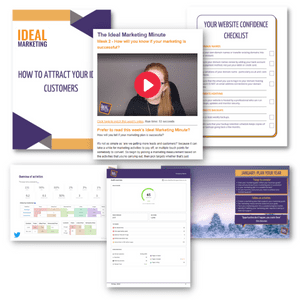Jess Shailes, Ideal’s Head of Digital Marketing will be joining other experts, including a speaker from Canada and a professor from the University of Leeds, to deliver a talk on ‘AI & E-Privacy’ at a Leeds Digital  Festival event which is already sold out.
Festival event which is already sold out.
Leeds Digital festival is the largest in the North of England, attracting thousands of visitors across the eleven days that it runs from 16th to 27th April.
Jess’ intention is to pose some questions to make those involved in AI to think about not what AI can do, but what it should do, and will be allowed to do by privacy regulations. Specifically, she will focus on machine learning as used in digital advertising and what it means for privacy.
Here, she provides a brief outline of what her talk will include:
The impact of AI on digital advertising
Machine learning will continue to have a profound impact on digital advertising, making a significant difference to the degree of personalisation, targeting and conversion rates possible. But how this is achieved is usually hidden, as the algorithms behind the results are the basis of competitive edge. However, with an e-privacy update on the horizon and GDPR just around the corner, companies may soon be forced to show exactly what data they have and how it is used.
Take Facebook as an example – in the most public of ways, Mark Zuckerberg admitted that he isn’t certain whether Facebook tracks its users’ online movements even after they have logged out of Facebook. Furthermore, when asked whether Facebook has the right to put a file name on someone’s data and share it with someone else, Zuckerberg says no, but when subsequently asked whether Facebook has the ability to do this (or for a breach like this to happen) he concedes yes: https://bit.ly/2HpwYYw
“Nearly 80% of 1,600 Quartz readers surveyed recently said they don’t trust Facebook with their personal data.” – Quartz
The results of machine learning on marketing campaigns
Much of the work that current machine learning does is in targeting people based on the information that they share in their online profiles. For example, in Google products like its core AdWords offering uses information about search queries, historical ad performance and other contextual signals combined with machine learning, to make predictions. When monitored and occasionally tweaked to optimise performance, these predictions inevitably exceed the performance of significantly less informed and targeted advertisements pre-machine learning.
Going forwards, will this be allowed to continue?
Now, as it applies to marketing, all that GDPR is realistically doing is regulating good quality, ethical marketing. This kind of marketing leads to a good brand experience and building customer trust, which is all good for sales.
GDPR was a shock to many companies, because they’d been using irresponsible methods for processing and maintaining data for years. It was only with the threat of a severe slap on the wrist, were they motivated to change. And thankfully that change has been possible.
But in the future will it be? It’s important to get this right now as data collected is only going to increase, particularly with developments in DNA digital data storage technology.
The ePrivacy update, which was supposed to be released on the same date as GDPR is not quite ready yet. In fact, there is currently no clear timeline from the ICO for its release. Perhaps this isn’t surprising, after all – how do you legislate for technology that doesn’t exist yet, for a world that doesn’t exist yet?
The implications of AI on future marketing practices
Almost every aspect of GDPR and the ePrivacy update can be applied to AI practices. For those that have seen the impact of GDPR on your organisations, imagine the same situation but with exponentially more data in hand.
So for the good of your career, your company, and maybe even society: consider not only what AI can do, but what it should do, and will be allowed to do by privacy regulations. It could save you a lot of time, frustration and money.
Book on to one of Jess’ digital marketing seminars
Jess has more than a decade’s experience in the ever-evolving field of digital marketing and her involvement in Google’s Squared Online Digital Marketing programme saw her being named as an inspirational leader by programme leaders. Jess was also named one of the top 5 most connected women in marketing by LinkedIn UK as part of International Women’s Day.

MD & Head of Digital Marketing
Jessica has worked in digital marketing for over 10 years and has watched it evolve from an experimental marketing option to an essential tool for most businesses. She is driven to help businesses achieve their objectives using the best digital marketing resources available and recognises that each business is different. Jessica devours the latest news about digital marketing and is constantly learning in order to stay ahead of the trends for clients.







